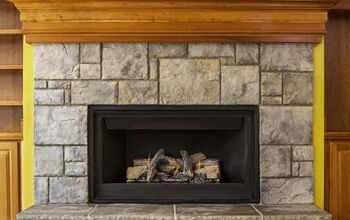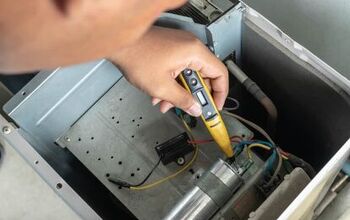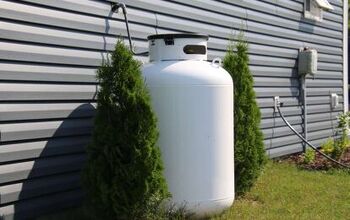Furnace Smells Like Gas When Running? (Know the Danger Signs)

It can be scary at first when your furnace smells like gas when running. The smell of the mercaptan in natural gas is disconcerting and can reasonably worry any homeowner. So, why does your furnace smell like gas when running, and should you be concerned?
It is normal for a furnace to smell like gas when running, especially if it just turned on. Furnaces typically smell like gas when you turn them on for the first time of the season during autumn or winter. You should only worry if your house smells strongly like gas without a reasonable explanation which could indicate a gas leak.
You can buy a natural gas detector that can indicate when natural gas levels are abnormal if you are worried. Otherwise, the gas smell is typically due to dust that burns off within a furnace when you run it. Follow along as we explore the factors that affect why your furnace smells like gas when running.
Do You Need a Furnace Repair Contractor?
Get free, zero-commitment quotes from pro contractors near you.

Is it Normal for My Furnace to Smell Like Gas?
It is normal if your furnace smells like gas when running, and you don’t need to worry. A furnace can often smell like gas when running, especially shortly after it turns on. The gas smell generally sticks close to the furnace where it is strongest.
You only need to worry about a gas smell if it is frequent, strong, and spreads throughout the entire house. However, you will likely always smell some level of gas emissions when your furnace kicks on for the day or the beginning of the season.
Natural gas itself does not have an odor, so manufacturers add mercaptan so that natural gas is detectable. Otherwise, you wouldn’t be able to know that there is natural gas in the air which is a major fire hazard.
Furnace Smells Like Gas on Startup
A furnace smells like gas when running generally right after you start it up if at all. Dust settles within a furnace throughout the day and season, and it can react with the gas on startup. This is especially common when you start to run the furnace at the beginning of fall or winter.
You will generally notice a gas smell when you run your furnace for the first time of the season. Impurities and dust that accumulate within the furnace while it is dormant typically burn up when you begin to use it for the year.
What to Do if You Smell Gas
Trace or faint amounts of gas can be normal to smell (as covered above). However, you should be concerned if your furnace smells like gas when running regularly. There are a few things that you should do right away if your house smells like gas without a reasonable explanation, such as:
- Cut off spark sources. The first thing that you should do is remove spark sources if there is a strong gas smell in your home. Unplug your fridge because it can generate a spark and ignite the gas in the air. Depending on the severity of the gas issue, even the smallest of sparks can start a major fire or explosion.
- Turn off the gas. The next step should be to turn the gas off. Limit how much more gas enters the air so that it doesn’t compound with whatever is already there. Evacuate your home and call 911 if the gas smell comes on strong and quickly increases for no apparent reason.
Gas smells are typically normal when a furnace starts up, but it could point to a gas leak. Trust your judgment and leave your home if there is a noticeable and strong increase in the odor over a short time. Most homes don’t have natural gas detectors, so it is worth it to request emergency services if you are unsure.
Gas Line Leaks
Gas likes are the worst-case scenario if your furnace smells like gas when running. Professionals bury gas lines beneath the ground in your yard typically. These gas lines can crack or burst during yard maintenance and cause a leak.
You can tell that a gas line beneath your soil is leaking if you notice small patches of yellow or brown grass above it. Gas lines can also leak closer to the furnace itself, and you will smell it when you run the furnace. Call 911 if you notice a damaged gas line or gas leak because your home and yard are both at risk.
Do You Need a Furnace Repair Contractor?
Get free, zero-commitment quotes from pro contractors near you.

Related Questions
Can a Gas Furnace Explode?
Technically speaking, it is possible for your gas furnace to catch on fire and even potentially explode. That said, it is a highly unlikely event. Most modern furnaces have safety measures built in to shut off when it detects potential safety issues.With older units, there could be concerns of explosion in the event of a gas leak, but even those aren’t likely. Update your furnace and provide proper preventative maintenance and you likely won’t have anything to concern yourself with.
How Can I Tell if My Furnace is Dying?
While a gas leak is certainly cause for concern, it could be indicative of a larger issue. That larger issue could mean that your furnace is potentially dying. There are several warning signs that can tip you off but depending on the condition of your furnace, you may have to replace the entire thing.
- Lack of heating. The first and most obvious sign that your furnace is dying is that it doesn’t do its job. Furnaces are supposed to hit the designated temperatures consistently and without a lot of trouble. If the furnace either can’t hit the programmed temperature or shuts off before doing so, it could mean that the entire unit is going bad.
- Abnormal noises. Your furnace will make noises from time to time but there are some noises that you should never hear. Thumping, popping, banging, rattling, and scraping noises can all be indicative of a greater problem. Investigate the noises to start and be prepared to call in an HVAC technician.
- Yellow burner flame. When your burner is working normally, it will be blue in color. When the flame starts to turn yellow, it could be giving off carbon dioxide. Any other flame than blue could be a sign of a gas leak or an incomplete combustion process.
- Frequent repairs. With older or malfunctioning furnaces, repairs will be necessary regularly. If your furnace is in constant need of attention, it could be nearing its end.
Related Guide

Ryan Womeldorf has more than a decade of experience writing. He loves to blog about construction, plumbing, and other home topics. Ryan also loves hockey and a lifelong Buffalo sports fan.
More by Ryan Womeldorf



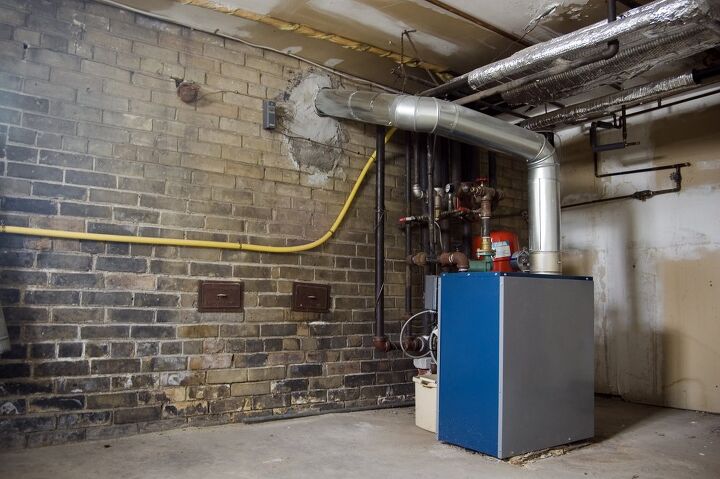








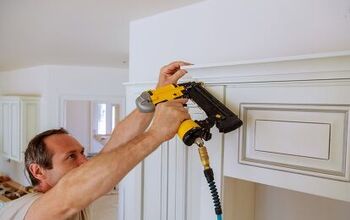

![10 Best Electric Pressure Washers – [2022 Reviews & Guide]](https://cdn-fastly.upgradedhome.com/media/2023/07/31/9070600/10-best-electric-pressure-washers-2022-reviews-guide.jpg?size=350x220)


